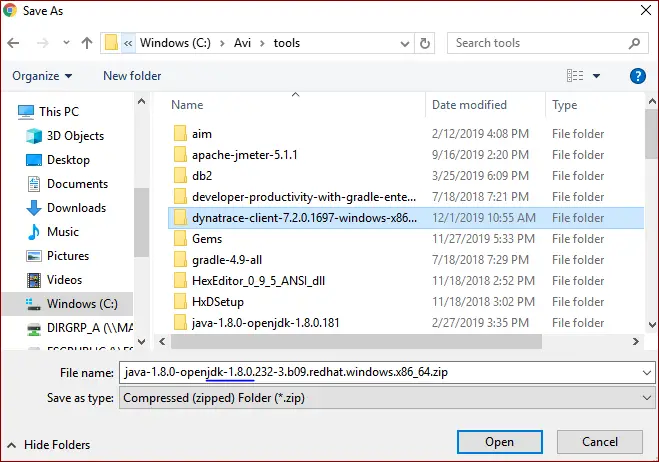

OpenJDK is available to download from the Red Hat Customer Portal. Red Hat maintains these projects upstream and adds additional future features into our builds that are available for download here. We deliver hardened solutions that make it easier for enterprises to work across platforms and environments, from the core datacenter to the network edge. The Red Hat build of OpenJDK is based on the upstream OpenJDK 8u and 11u projects.

For example Red Hat tests and supports Java EE implementations such as the JBoss Enterprise Application Platform running on OpenJDK. At JavaOne 2006, Sun announced that Java and the core Java Platform would be open sourced. Depending on your circumstance, use one of the following installation methods: Installing OpenJDK with the archive.
RED HAT OPENJDK ARCHIVE
OpenJDK 11 for Windows can be installed using an archive or through a graphical user interface using an MSI-based installer.
RED HAT OPENJDK FREE
We’re the world’s leading provider of enterprise open source solutions-including Linux, cloud, container, and Kubernetes. Red Hat OpenJDK builds have passed the relevant Java SE TCK version made available by Oracle and Red Hat tests and supports these with Java EE implementations (see OCTLA). OpenJDK started as a free and open source implementation of the Java Platform, Standard Edition, as a result of a 2006 initiative by Sun Microsystems. OpenJDK 11 for Windows installation options. The implementation is licensed under the GPL-2.0-only with a linking exception. 2 It is the result of an effort Sun Microsystems began in 2006. The Red Hat Ecosystem Catalog is the official source for discovering and learning more about the Red Hat Ecosystem of both Red Hat and certified third-party products and services. OpenJDK started as a free and open source implementation of the Java Platform, Standard Edition, as a result of a 2006 initiative by Sun Microsystems. Open Java Development Kit) is a free and open-source implementation of the Java Platform, Standard Edition (Java SE). Steven Vaughan-Nichols writes via ZDNet: Id been waiting for Oracle to throw its hat into the ring for the Red Hat Enterprise Linux (RHEL) Linux source-code fight.


 0 kommentar(er)
0 kommentar(er)
